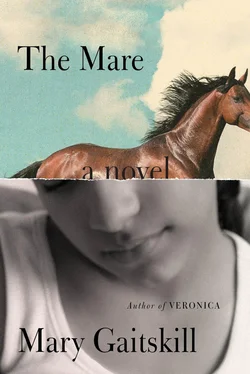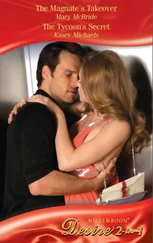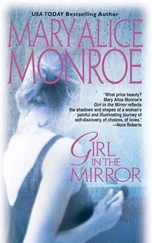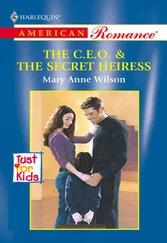“Where I always am, right in front of you.”
“Listen,” I said. “I know what I did was cowardly and fucked-up. But I love you. Do you love me?”
She looked at me then and her eyes finally showed her. “Yes,” she said. “But I don’t feel it now.” And she left the room. I heard the front door open and softly close.
I went to the park where we took Velvet those years ago and sat on a picnic table with my knees up and held close against myself. A short distance away there were little kids on the swings, their father pushing them, the mother getting something from the car, watching them as she closed the door with her hip, guardian care visible to me in her neck and jaw even though I could not make out her face. The light child-voices sounded so far away in the cold spring air.
Cheating. Of course I know why they call it that. I hate it, but I know. So much of what happens between people is comparable to a game. There is a deep, soft core that everyone longs for, too deep for games or even words. But to get to that, you have to play and play well. And I did not know how. Art, society, relationships, simple conversation — I couldn’t understand how to do any of it. I don’t know why; I don’t know what was wrong with me. I tried, and when I was young and good-looking it could at least sometimes seem like my failure was actually an interesting artistic version of some special game. But now the truth is so plain that even Velvet’s illiterate mother can see it. It’s clear even to her — somehow especially to her — that I couldn’t even do the thing every woman on the planet knows how to do. I can see her contempt, the question in her eyes: What is wrong with her? How did she even get a husband? And still, it was her child, the lovely girl that she doesn’t even want, the child I finally loved, who somehow allowed me a way in, who made me feel what everyone else felt; finally I could join, be part of the play — except everybody thought that was wrong too, that somehow I still wasn’t doing it right.
Everybody including my husband. I got up off the table and my movement caught the eye of the mother at the swing set. She waved at me and I realized I knew her; she was the aunt of one of the Cocoon Theater kids. I waved back at her and she came toward me.
Please God, I thought. Not now. I resisted the urge to put my hands over my face. She kept coming. But what is doing it right? What in hell can I do that’s right?
“Hey,” she said, smiling. “Weren’t you in the Christmas Carol a couple of years back?”
“Yes,” I said. “Yes, I was.”
“I thought so! You were really good!”
“Thank you,” I said. “It was a lot of fun.”
Great, something I did right — act in a play for children.
My mom said about Ginger once that she had a crazy eye and I always thought, No, she just looks sad a lot. But now her eyes shined like a animal in the dark and I didn’t know their expression.
I said to her, “You’re different.”
She was making me cucumbers with white vinegar, and when I said that she stopped and said, “How?”
“Your voice is different, everything is different. You say things like it’s in a book with quotes on it. Even to Paul.”
For a second she looked like herself, and I missed her. Then she went back to the salad. “Something happened,” she said. “But I can’t talk about it.”
“Why can’t you talk about it?”
“You’re too young. But don’t worry, it was nothing horrific. It’ll be okay.”
I went to see the horses and it was okay because it needed to be. I didn’t want to think about whatever was wrong with Ginger. I couldn’t stop thinking about Dominic, but for once I felt like, he says I’m from someplace else and he can’t be there — and he’s right. He can’t be here. Here is like coming back to my country, and not sneaking in like a illegal. Fiery Girl was back too; her stall had a sign on it, but instead of “Do Not Touch,” it had her name carved on it and inside it was cleaned. She was not wearing the cribbing strap even if she sometimes bit her stall, and when I came with the halter she put her head down like YES.
Pat took Graylie and we went out by the paddock. I saw Sugar and Nova running together, and all the others bucking, clowning, and talking loud at each other with their heads and backs and legs. Fiery Girl raised her head and called to them and somebody called back. She got turned out with the other horses because she learned how to be with Chloe and Nut; now she could go out with everybody but Totally Crushed and Diamond Chip — she still fought them. I could feel her shivering toward the other horses inside herself, but I pulled down on the lead and she lowered her head, sending softness and obedience to me. The air had new smells and sounds, and the horses said it with all the muscles of their backs and legs: Spring, spring, spring!
We mounted and went out down the path where I’d run with her bareback; my legs remembered and it felt like she did too, like under me she bunched and sighed. I remembered how the orchard was all rotting fruit flying past my face; now the trees were getting buds, and there was a feeling of something about to happen in the ground and even the air. The path was first big enough for the horses to walk side by side, but Fiery Girl walked faster than Graylie and when the path narrowed, we led the way. We had to stay on the path because of holes where the horses could break their ankles, or maybe snakes.
When the path got wide again Pat said, “We’ve missed you the last few weeks.”
I said, “Me too.”
“You know you have to keep up your practice if you want to compete.”
I said, “I know. I’m sorry.” I could feel her expecting me to say more. But I couldn’t tell her now. Now didn’t have anything to do with all that.
“You know, if you don’t want to compete, that’s your business. But if you don’t, I hope it’s not because you think you can’t.”
My heart went quiet in my chest. Still, I couldn’t speak.
“When I used to compete — I liked to win, I liked the applause, I liked the prizes and trophies. I especially liked to beat certain people, that’s the truth. But what felt best was the reason I won, when I did. It was because of my bond with my horse. Because under pressure, I could put my mind and my body together with his, and I could feel it, like he would go through the wall for me if I asked him to and he knew I meant it. And I would go through the wall with him. And everybody could see. You know what I mean?”
“Yes.”
“I think you do. I know you do. I know you can. But it’s one thing to do it out here. It’s another thing to do it in front of people, with other riders who’re all doing the same. It’s powerful, more real. Even if you don’t win. If you don’t try it, you’ll never know.”
I didn’t answer her and she didn’t try to make me. We just rode quiet, feeling her words. The only time I talked was when I asked her about this covered-box shape up in some trees; she told me it was a blind for hunters left over from hunting season. That they would hide in there and shoot.
We stopped when we came to the fence where I fell off before. Pat dismounted and walked Graylie to the fence and tied him. The fence was wood posts with torn-up rails stuck through holes in the posts. Pat took one end of the top rail and pushed it out the hole so it came down on the ground. Fiery Girl moved like a five-year-old that needs to pee, wanting to eat grass, talk to Graylie, run, something. I had to pull her back, turn her in a circle, sit her firm. Pat took the second rail down and said now we were gonna gallop to the jump. Gallop not like in the arena, but all the way. Fiery Girl’s back legs moved all over, like she knew something was different, then we cantered away from the fence. When we found a place to stop Pat asked me, “Have you seen racing on television?” “At your house once,” I said. “Okay, it’s not gonna be like that. You want to be more grounded in your stirrups, not forward like the jockeys on TV. You do want to lean forward in the gallop. You want to get off her back and kick her forward — but just before the jump? Sit deep in the saddle with your shoulders over your center, but I mean just before. Got it?”
Читать дальше












